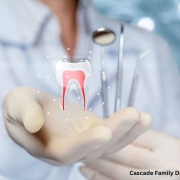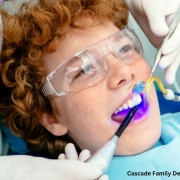What are the benefits of maintaining good dental hygiene for our overall health?
Introduction:
Maintaining good dental hygiene is important not only for achieving a bright smile and fresh breath but also for promoting overall health and well-being. While many of us realize the significance of brushing and flossing, the connection between oral health and systemic health is often underestimated. In this blog, we will delve into the numerous benefits of maintaining good oral hygiene for our overall health and emphasize the importance of prioritizing oral care as a part of a holistic approach to wellness.
- Prevention of Gum Disease: One of the most significant benefits of good dental hygiene is the prevention of gum disease, also known as periodontal disease. Gum disease occurs when plaque – a sticky film of bacteria – builds up along the gumline, leading to inflammation and infection of the gums. If left untreated, gum disease can progress and cause tooth loss and other serious health complications. By brushing and flossing regularly, as well as visiting the dentist for routine cleanings, you can reduce your risk of gum disease and maintain healthy gums for life.
- Reduced Risk of Heart Disease: Believe it or not, there’s a strong link between oral health and heart health. Research has shown that gum disease is associated with an increased risk of heart disease, stroke, and other cardiovascular conditions. The inflammation and bacteria associated with gum disease can enter the bloodstream and contribute to the development of plaque in the arteries, leading to narrowed arteries and poor blood flow. By maintaining good dental hygiene, you can help reduce your risk of heart disease and protect your overall cardiovascular health.
- Lower Risk of Diabetes Complications: People with diabetes are more susceptible to gum disease, and gum disease can make it more challenging to control blood sugar levels. This creates a vicious cycle where uncontrolled diabetes can worsen gum disease, and gum disease can exacerbate diabetes complications. By keeping your teeth and gums healthy through regular brushing, flossing, and dental check-ups, you can help manage your diabetes more effectively and reduce the risk of complications.
- Improved Respiratory Health: Poor oral hygiene can contribute to respiratory issues such as pneumonia and chronic obstructive pulmonary disease (COPD). The bacteria from infected teeth and gums can be inhaled into the lungs, causing respiratory infections and exacerbating existing respiratory conditions. By practicing good dental hygiene and keeping your mouth free from harmful bacteria, you can support better respiratory health and reduce the risk of respiratory infections.
- Enhanced Pregnancy Outcomes: Maintaining good dental hygiene is especially crucial for expectant mothers. Pregnant women with gum disease are at a higher risk of complications such as preterm birth and low birth weight. The inflammation and bacteria associated with gum disease can trigger an immune response that may interfere with the development of the fetus. By prioritizing oral care during pregnancy, expectant mothers can help reduce the risk of complications and promote better outcomes for themselves and their babies.
- Preservation of Cognitive Function: Poor oral health may cause cognitive decline as gum disease leads to chronic inflammation which could trigger neurodegenerative diseases like Alzheimer’s. Bacteria from infected gums can enter the bloodstream and damage cognitive function. Good dental hygiene practices, including regular check-ups, brushing, and flossing, can help prevent cognitive decline and preserve cognitive function as you age. It can also keep your smile healthy and improve your overall quality of life.
Conclusion:
Maintaining excellent dental hygiene doesn’t just result in a bright smile; it also offers extensive health benefits. Consistent brushing and flossing, regular visits to the dentist for check-ups, and promptly addressing any oral health concerns are essential for overall well-being. A dedicated approach to dental hygiene care not only reduces the chances of gum disease and heart issues but also enhances respiratory health and contributes to better pregnancy outcomes. Thus, prioritizing dental hygiene clinic visits and dental hygiene care isn’t solely about aesthetics; it’s about safeguarding systemic health and optimizing your quality of life.



